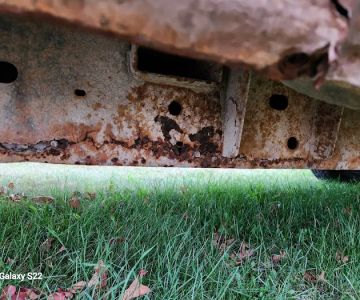What Are Some Good Questions to Ask a Veterinarian?
When it comes to the health and well-being of our beloved pets, ensuring they receive the best care is a priority. However, the world of veterinary care can be complex, and as pet owners, it’s crucial to be prepared when visiting the vet. One of the most important aspects of a vet visit is asking the right questions. Having a list of thoughtful questions can help you better understand your pet’s health, prevent future issues, and ensure you're taking the right steps to provide a healthy life for your pet. But what are the best questions to ask a veterinarian during your appointment? Let’s dive into some essential inquiries to make the most of your veterinary visits and keep your pet happy and healthy.
1. Basic Health Check and Preventative Care
One of the first questions to ask your vet is about your pet’s overall health and the steps you can take to prevent future illnesses. Regular check-ups are essential for maintaining good health, and understanding what preventative measures you can take is vital for ensuring a long and happy life for your pet. Here are a few examples of questions you might ask:
- “Is my pet at a healthy weight?” It’s important to understand if your pet is at the appropriate weight for their breed and age. Weight management plays a significant role in your pet’s health, as being overweight or underweight can lead to various health problems.
- “What vaccinations does my pet need?” Ask your vet about the recommended vaccinations based on your pet’s lifestyle, environment, and age. This helps prevent the risk of preventable diseases.
- “What parasite prevention treatments should I consider?” Fleas, ticks, and worms can cause major health problems for pets. Make sure you discuss preventative treatments with your vet to keep your pet protected.
By asking these basic questions, you’ll gain a clear understanding of the preventative care your pet requires, keeping them in top condition.
2. Understanding Your Pet's Diet and Nutrition
Nutrition is the foundation of your pet’s health, and it’s essential to understand their dietary needs to prevent obesity, malnutrition, or other diet-related issues. Proper nutrition can boost energy levels, improve skin and coat condition, and support better digestion. Here are some helpful questions to ask your vet regarding diet:
- “Is my pet on the right diet?” Ask your vet whether your pet’s current food is providing the necessary nutrients for their breed, size, age, and activity level. Nutrition needs vary significantly between pets.
- “Should I consider switching to a special diet?” If your pet has specific health concerns, such as kidney disease or food allergies, you may need to switch to a prescription diet.
- “What are some healthy treats I can give my pet?” Discuss healthy treats that won’t negatively impact your pet’s weight or overall health. This is particularly important if your pet is on a restricted diet.
By discussing these dietary questions with your vet, you can ensure that your pet is getting the right nutrition to live a long and healthy life.
3. Understanding Behavioral Concerns
Behavioral issues are common in pets, and they can be signs of underlying health problems or stress. Understanding your pet’s behavior is essential to their overall well-being. Ask your vet these questions if your pet is showing any signs of behavioral changes:
- “Why is my pet acting out or showing aggression?” Behavioral issues such as aggression, anxiety, or excessive barking may have medical or psychological causes. Your vet can help determine whether the behavior is due to stress, discomfort, or an undiagnosed health issue.
- “How can I manage my pet’s anxiety?” If your pet suffers from separation anxiety or other stress-related behaviors, your vet can suggest appropriate treatments, from medication to training techniques.
- “What can I do to prevent destructive behavior?” Destructive behavior in pets, such as chewing or scratching, can indicate boredom, stress, or health problems. Your vet can provide guidance on how to redirect these behaviors.
By addressing behavioral concerns with your vet, you can ensure your pet is comfortable and living in a stress-free environment.
4. Common Medical Conditions and Symptoms
As a responsible pet owner, you need to be aware of the signs of common medical conditions that could affect your pet. These conditions can vary from digestive issues to chronic illnesses, and early detection is key to effective treatment. Here are some helpful questions to ask your vet:
- “What are the early signs of common illnesses in my pet?” Ask your vet to explain the warning signs of common conditions like dental disease, heart disease, or arthritis, so you can act quickly if they arise.
- “What should I watch for if my pet is in pain?” Knowing the symptoms of pain, such as limping, vocalizing, or reduced activity, will help you address any health issues promptly.
- “What are the most common health problems for my pet’s breed?” Some dog breeds are more prone to certain health conditions, so it’s important to know what to expect based on your pet’s breed.
Understanding common health issues will help you keep an eye on your pet’s health and ensure you catch any problems early on.
5. Discussing the Aging Process and End-of-Life Care
As your pet ages, their needs change, and it’s important to be prepared for this transition. Having open conversations with your vet about aging, end-of-life care, and palliative options can ensure that your pet’s golden years are comfortable and dignified. Here are some important questions to ask:
- “What are the signs that my pet is aging?” Ask your vet to explain the typical aging process and what physical or behavioral changes to expect as your pet grows older.
- “How can I make my senior pet more comfortable?” Inquire about mobility aids, joint supplements, or changes to your pet’s routine that can help them remain comfortable as they age.
- “What are my options for end-of-life care?” Discuss end-of-life options, including euthanasia, home hospice care, and pain management to ensure your pet’s comfort in their final stages of life.
Being proactive about your pet’s aging process can ensure that their last years are filled with comfort, love, and care.
6. Emergency Care and Veterinary Support
Emergencies happen, and it’s important to be prepared. Knowing what to do if your pet needs urgent care can make a world of difference. Make sure to ask your vet the following questions:
- “What should I do in case of an emergency?” Ask your vet for specific steps to take if your pet experiences a medical emergency, such as a severe allergic reaction or trauma.
- “What are the signs that my pet needs urgent care?” Understand the symptoms that indicate your pet needs immediate attention, such as difficulty breathing, seizures, or excessive bleeding.
- “Do you offer after-hours care or know of emergency veterinary clinics nearby?” Knowing where to go in case of an emergency can help reduce panic during stressful situations.
By asking about emergency care, you can be better prepared to act quickly if your pet experiences a sudden health issue.
Having a strong relationship with your veterinarian is essential for your pet’s health. By asking the right questions, you not only gain valuable insights into your pet’s well-being but also ensure that you’re doing everything you can to provide the best care. Be proactive, stay informed, and don’t hesitate to ask questions at your next vet visit.
SEO Title: The Best Questions to Ask Your Veterinarian for Your Pet’s Health SEO Keywords: questions to ask a veterinarian, pet health questions, vet visit, cat health, dog health, veterinary care SEO Description: Discover the best questions to ask your veterinarian to ensure your pet's well-being. Learn about pet health, emergency care, and preventative treatments.










